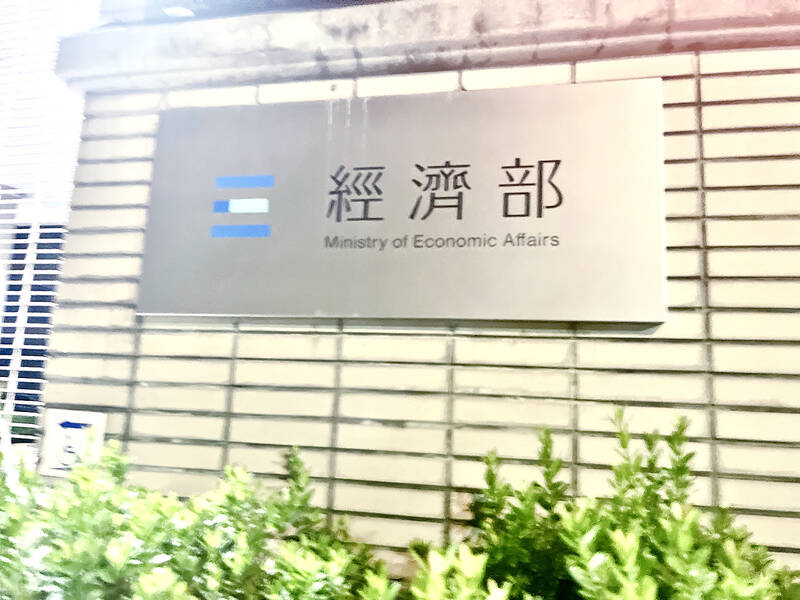Taipei would help Taiwanese firms relocate their China-based production plants if US president-elect Donald Trump carries out his threat to impose a 60 percent tariff on Chinese-made goods, the Ministry of Economic Affairs said yesterday.
Trump’s victory in the US presidential election has left world leaders, business owners and stock markets grappling with the potential impact of his return to the White House.
During the election campaign, Trump vowed to get tougher on China, promising to slap 60 percent tariffs on all Chinese goods entering the US.

Photo: Liao Chia-ning, Taipei Times
“We will come up with some assistance very soon to our Taiwanese business people on how to transfer their production bases so they would not be subjected to a 60 percent tariff,” Minister of Economic Affairs J.W. Kuo (郭智輝) said at a meeting of the legislature’s Economics Committee in Taipei.
Kuo did not provide further details on the measures.
Many Taiwanese companies have set up factories in China during the country’s economic opening over the last four decades, but investment has fallen sharply in recent years owing to regional tech disputes.
From 2019 to 2021, as a trade war raged between Beijing and Washington, Taipei offered Taiwanese businesses in China incentives to return to Taiwan. They included two years free rent in the economic ministry’s industrial zones, labor subsidies and cheaper loans.
Trump has described “tariff” as the most beautiful word in the dictionary and his second presidential term promises sweeping measures on all US$3 trillion worth of US imported goods. He has promised at least a 10 percent tariff on all imports, and a higher level of 60 percent or more on Chinese goods.
Kuo said Trump’s suggested 10 percent tariff on all US imports would have a limited effect on Taiwan. However, Trump’s proposed 60 percent levy on Chinese-made products would have a greater impact on Taiwanese firms operating in China, the minister said.
Regarding trade talks between Taiwan and the US, Yen Huai-shing (顏慧欣), an official at the Executive Yuan’s Office of Trade Negotiations, said at the meeting that Taiwan has long had a good trade relationship with the US and that the office would keep in contact with the US president-elect’s team and confirm trade negotiation strategies.
International Trade Administration Director-General Cynthia Kiang (江文若) said that Taiwan and the US have already signed the first agreement in the “US-Taiwan Initiative on 21st-Century Trade.”
However, the agreement, which still requires the approval of the US Congress, would not come into effect for some time, Kiang said.
After Trump assumes office, the Ministry of Economic Affairs would emphasize Taiwan-US trade discussions, she said.
Additional reporting by CNA

The US dollar was trading at NT$29.7 at 10am today on the Taipei Foreign Exchange, as the New Taiwan dollar gained NT$1.364 from the previous close last week. The NT dollar continued to rise today, after surging 3.07 percent on Friday. After opening at NT$30.91, the NT dollar gained more than NT$1 in just 15 minutes, briefly passing the NT$30 mark. Before the US Department of the Treasury's semi-annual currency report came out, expectations that the NT dollar would keep rising were already building. The NT dollar on Friday closed at NT$31.064, up by NT$0.953 — a 3.07 percent single-day gain. Today,

‘SHORT TERM’: The local currency would likely remain strong in the near term, driven by anticipated US trade pressure, capital inflows and expectations of a US Fed rate cut The US dollar is expected to fall below NT$30 in the near term, as traders anticipate increased pressure from Washington for Taiwan to allow the New Taiwan dollar to appreciate, Cathay United Bank (國泰世華銀行) chief economist Lin Chi-chao (林啟超) said. Following a sharp drop in the greenback against the NT dollar on Friday, Lin told the Central News Agency that the local currency is likely to remain strong in the short term, driven in part by market psychology surrounding anticipated US policy pressure. On Friday, the US dollar fell NT$0.953, or 3.07 percent, closing at NT$31.064 — its lowest level since Jan.

The New Taiwan dollar and Taiwanese stocks surged on signs that trade tensions between the world’s top two economies might start easing and as US tech earnings boosted the outlook of the nation’s semiconductor exports. The NT dollar strengthened as much as 3.8 percent versus the US dollar to 30.815, the biggest intraday gain since January 2011, closing at NT$31.064. The benchmark TAIEX jumped 2.73 percent to outperform the region’s equity gauges. Outlook for global trade improved after China said it is assessing possible trade talks with the US, providing a boost for the nation’s currency and shares. As the NT dollar

The Financial Supervisory Commission (FSC) yesterday met with some of the nation’s largest insurance companies as a skyrocketing New Taiwan dollar piles pressure on their hundreds of billions of dollars in US bond investments. The commission has asked some life insurance firms, among the biggest Asian holders of US debt, to discuss how the rapidly strengthening NT dollar has impacted their operations, people familiar with the matter said. The meeting took place as the NT dollar jumped as much as 5 percent yesterday, its biggest intraday gain in more than three decades. The local currency surged as exporters rushed to